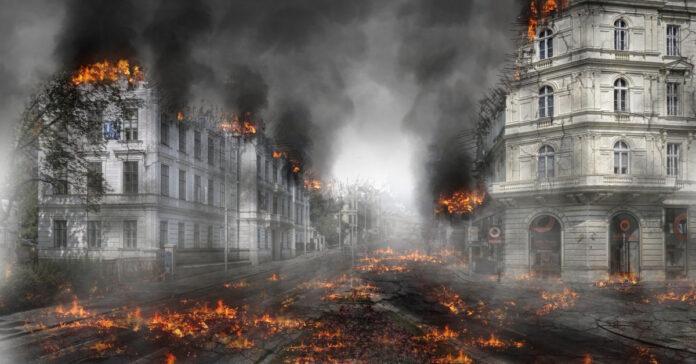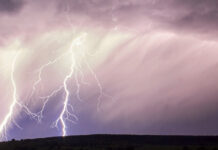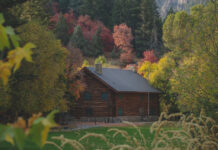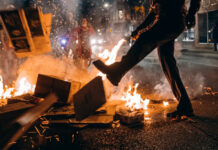Although it has gotten little attention in the mainstream media, Putin made a series of increasingly aggressive steps earlier this week that is raising the nuclear tensions. For example:
- During Biden’s visit, Putin put his nuclear forces on high alert . They remain in a state of “combat readiness.”
- Russia scheduled an ICBM missile test launch earlier this week, but the SATAN II missile failed to launch. This just adds to speculation that Russia’s nuclear arsenal is in the same state its tanks and trucks were: combat ineffective due to lack of maintenance.
- In response to Biden’s continued support for Ukraine and his desire for regime change in Russia, Putin has suspended Russia’s participation in the START arms control treaty.
- In a speech earlier in the week, Putin also threatened to resume testing nuclear weapons, which would violate several treaties.
President Biden isn’t helping matters. By threatening China if they send arms to Russia, he is intensifying the anger Russia and China already feel towards the U.S. I think China’s anger towards us is justified. For example, we sell arms to Taiwan, we just quadrupled the number of U.S. military personnel in Taiwan to help train their soldiers, and we have sent almost $200 billion in arms and aid to Ukraine. We think that’s OK, but we threaten China if they support their allies. Our position is almost daring China to test our line in the sand and is sending China deeper into Russia’s embrace.
How to Prepare for Nuclear War
If we fear the chance of a nuclear war has grown, then it makes sense to prepare. This site and many others are filled with general suggestions on how to prepare, so we are going to assume you have the basics covered and want to enhance your preparations specifically to survive a nuclear attack or exchange.
If you believe you have weeks or months in which to prepare before an attack or accident, the best thing to do to is to stock up on potassium iodate (KiO3) which can block the absorption of radiation in the thyroid. Be careful because some companies will sell you potassium iodide (Ki), which is similar but less effective and has a shorter shelf life. If the iodate isn’t available, the iodide is better than nothing, but try for the iodate.
Build an Expedient Fallout Shelter
If you have the space and the money, building a fallout shelter is an option. Buying pre-made shelters requires months of lead time, but you can find information online on how to build your own. In the 1950s into the 1960s, the government published a series of booklets on how to build backyard or expedient shelters, including in your basement, and these are often available in PDF format. (No links are provided because we do not endorse one or the other approach. Do your own research and pick the best design for your situation.)
The book Nuclear Survival Skills also offers a number of designs you can build with a shovel and some manpower. If you have access to an excavator or backhoe, it will be even easier. (For more information on fallout, read Protecting Yourself from Fallout.)
Alternatively, you can look for an existing location that will protect you from either the blast or radiation. For example, if you live in an apartment building that has a four-story parking garage below it, fill your vehicle with supplies and park it on the bottom level. That will offer substantial protection. Many older schools and government buildings have old, decommissioned fallout shelters in their basements. Thye may not contain supplies, but they will still block harmful radiation. Deep subway stations and tunnels should also offer shelter.
Experts recommend you stay sheltered from fallout for at least three weeks, so plan accordingly. Children and women who expect to have children should stay protected for even longer periods.
What to do if Nuclear War is Imminent
If you believe nuclear war is a day or two away (and I’m not suggesting it is), we have prepared a list of last-minute preps.
Let me be clear that you should not do this type of prepping after the missiles have launched; you must do it before. If there has been a small exchange using tactical nukes in Ukraine or the Black Sea, you may still have time, but if there are reports of nuclear explosions in the U.S. or on Russian soil, your best bet is to batten down the hatches and take shelter as if a tornado is coming.
If time allows–and only if time allows–below is a list of some last-minute preps.
Bug Out
If you feel a nuclear exchange between the U.S. and Russia or China is likely in the next 48 hours, then fill your gas tank and put your bugout plan into action. If you live near or immediately down range of a potential target of military value, consider bugging out before the bombs drop and hit you with radiation. You should already have a plan for where you are going and what you are bringing. Put it into action.
If you are hosting some folks who will bug out to your place, stay in touch so you know when to expect them. Suggest they pre-position some clothing and supplies. As the threat level rises, encourage them to bug out early rather than late.
The rest of these recommendations are for folks who are not bugging out or have already arrived at their secure bugout location.
Buy Fresh Food
We have to assume the power will go out as a result of any serious nuclear attack, so I recommend you run out and buy fresh foods that can last without refrigeration. By now, you should already have canned foods and freeze dried and dehydrated survival foods, but these are different. On my last-minute food list are fresh foods with a shelf life of at least a few weeks. This includes potatoes, sweet potatoes, onions, cabbage, carrots, apples, country ham, beef jerky and other meat snacks, and hard cheeses. You could also get foods that go stale over time, like crackers and breakfast cereals, which might not be a normal part of your prepper pantry. Also on my last minute list are cans of pasta sauce and comfort foods like chocolate chip cookies and pretzels. Because who’s counting calories at the end of the world?
Buy Baby Stuff
If you have infants and toddlers at home, consider stocking up on diapers and other consumables you might need if the situation lasts for months. This would include baby food, formula or powdered milk, vitamins, clothing and maybe a few pairs of shoes they can grow into. Imagine you can’t go shopping for six months and buy appropriately.
Get Livestock and Pet Feed
I always like to have a stockpile of chicken feed and pet food, but since it gets consumed quickly, we’ll add to our stock at the last minute, if time allows.
Fuel Up
During uncertain times, you should not to let your car’s gas tank drop below half full. If you use propane or home heating oil, consider the same policy for those tanks. If you have a kerosene heater, make sure you have fuel on hand.
You should also dill any spare gas cans you own. Gasoline will no doubt become a valuable commodity during a World War, even one that doesn’t use nukes. Any escalation that involves the Middle East will drive up oil prices. Yes, gasoline is flammable, but I’ll take the risk because we are unlikely to be near a blast.
When filling my gas cans, I pay extra for fuel with no ethanol it. This blend of gas is better for small engines like those found in chain saws and generators. I add some Stabil or PRI-G when I fill the can to extend the shelf life of the gasoline.
I would add buying batteries to the “fuel up” list. Think of the devices you have, such as lanterns, radios and flashlights, and pick up a few extra packages of the whatever size battery you need.
Buy Bags of Dirt
This is on my personal list, even though I have a dozen bags here on standby. If you are building an expedient fallout shelter, fill sand bags or buy bags of garden soil, top soil, raised bedding mix, or similar products that can absorb radiation. If many ground bursts go off or one is within a few hundred miles, you could experience a high level of fallout. You can use those bags of dirt to build a radiation shield to help protect you and your family.
I plan to use the bags instead of sandbags. I will pile them on the floor above our basement shelter. One layer is good, two is even better. Outside the house, I will pile loads of bags or stacks of firewood against any part of the foundation that is exposed above ground.
If dirt is not available, bags of cement will work, as will bags of gravel, rows of brick or stacks of pavers. Any kind of heavy, dense material between you and the fallout will help reduce your exposure to the radiation.
When the Missiles Fly
If we reach a point where there are ballistic missiles inbound, your best bet is to head to your basement. If you don’t have a basement, go to an inside room of your house or apartment. You want to stay away from windows that might cause broken glass to fly into the room.
If you are in a blast zone that is hit by an airburst, chances are you will be dead in a blink of the eye and won’t feel any pain. Further from the zone, fire and the concussive force of the blast will be a bigger problem. This is the worst area to be located during or after a nuclear detonation, as it may not knock down buildings and cause fires as well as expos you to a dangerous dose of radiation. It’s important to remember, however, that people in Hiroshima lived because they were protected by a brick or stone wall, so survival is possible.
Outside the blast zone and the reach of the immediate explosive effects of the detonation, you are likely to survive unscathed. The problem then becomes surviving the fallout. Air bursts, which will likely be used against cities and other soft targets, will create little fallout. Ground bursts, which are intended to destroy underground bunkers, missile silos, protected submarine pens, and other hardened targets, will throw tons of radioactive contaminants into the air. The heaviest particles, like clods of dirt and stone, will fall out immediately downwind. Lighter particles will stay airborne longer and fall out further downwind. The further away you are, the more time that passes, and the less radioactivity fallout will exhibit. Still, fallout can remain dangerous, especially when consumed or inhaled.
Post-Blast
As we reported earlier this month, scientists think a nuclear war between the U.S. and Russia will leave many survivors. After the exchange, the challenge will be surviving the long-term aftereffects, including nuclear winter, which could lead to colder temperatures, less food production, and starvation. This is where your general preps could help.
Outside of a dinosaur-killing asteroid strike, nuclear war is the worst-case survival scenario, and right now it is the more likely of the two. The deaths and physical devastation will be great, but the lingering aftereffects could be even worse. I expect humanity will survive. The question is, will you and I? We can only try our best and prepare as hard as possible.








